It goes without saying that it is important to take care of your Oud. My poor Oud has had its share of mishaps and abuse. But it has thankfully survived thanks to superb craftsmanship by Luthier Dimitri Rapakousious. I think it sounds better and better as it ages.
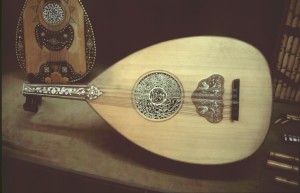
Humidity and Peg Maintenance and Care
I had just brought my Oud back home to Canada from Greece in the summer of 07’, and I was happily enjoying the fantastic low action and playability it offered as well as the sound I had been looking for since I first heard the Oud many years before (This Oud was my first real Arabic Oud, as I was playing an Iranian made Barbat up until then). Vancouver’s weather being what it is, it is incredibly humid here! We get up to 98% humidity at times…
High humidity puts moisture in the air, and untreated wood like fine spruce soundboards, and ebony tuning pegs absorb moisture well, especially when coming from dry environments like Athens where the highest average humidity is only 70%. When wood absorbs moisture, wood expands. This is problematic for tuning pegs as they are already under pressure from being in peg holes. So one of my tuning pegs swelled quite a bit, to the point where I couldn’t turn it at all. I was trying desperately to loosen it, and didn’t know anything about humidity effect on wood at the time. I turned it and it was so stuck that the wood started to become brittle and eventually twisted.
That was a sad day.
Fortunately, there are many Luthiers in Vancouver and I took my Oud into a Violin Luthier Gerard Samija who knew a thing or two about Ouds and he popped the stuck peg out and replaced it for $20 bucks. It was good as new now, but he didn’t have exactly the same shape of peg, so now one peg is not quite like the others, but it works, and it’s much smoother than the others actually.
He put some powdered graphite on the new peg to make it turn smoother as well.
If your pegs are too loose, you can also try peg paste. My pegs are untreated so the wood is prone to expansion and contraction with fluctuating humidity. How I solve this is quite tricky. When I tie strings to each peg, sometimes I wrap the string so that it winds toward the wood holding the peg in. This creates friction and pressure and the peg doesn’t stays tighter. You should be careful with this method, because if the peg gets too tight the next time the humidity expands the wood, the peg might get stuck. I really do not recommend this to a beginner.
Humidity has a really bad effect on instruments. In Vancouver, this is a special issue. But dryness can damage your Oud too.
Cold and Dry
I was attending a workshop where the Vancouver Inter-Cultural Orchestra was gathering many different ethnic musicians to share information and work on music together. The hall that we were using was very cold, and it was a winter day. Needless to say, it was cold and dry.
I allowed someone to demonstrate some kind of useless avant-garde Pipa technique on my Oud and his finger slipped so forcefully upon the soundboard that it cracked it close to the neck beside the fingerboard right then and there!
If it wasn’t for the excellent craftsmanship of Dimitri, my Oud would probably have some issues by now. But it was okay, and maybe even sounds better now for the crack. Most importantly, the action was not affected by this damage.
The braces that support the soundboard are very important in keeping the shape of the Oud. The braces are what keep it together today.
Action
Action is really, really important for playing an Oud or any stringed instrument. Action is the height between your strings and the fingerboard. Low action is easier to play, but if the action is too low, it can cause unwanted buzzing. If the action is high, it can make the Oud unplayable, and you will get tired of practicing very quickly.
When you are selling your stringed instrument online, It is nice to add photos of your instrument action from the side so that the potential buyer can see how good or bad the action is.
This was one of the problems I had with my Persian Barbat. It was one of the most well made and sounding instruments I have ever owned. It was also very comfortable to play except for the action. Persian Barbats tend to have a little higher action than Arabic Ouds to begin with in order to get a clean sound, but mine had increased due to whatever reasons. It had traveled a lot, passed down to many people, etc. The soundboard had warped a bit.
I wanted to have it fixed because it was interfering with my practice, I was not making progress because it was difficult to play. So I sent it down to Richard Hankey AKA Dr. Oud to see what he could do with it.
His work helped a lot, the action improved. He did not want to sever the neck and re-attach it, so he added some rosewood to increase the height of the fingerboard to the strings. It did the job.
String Maintenance and Care
I like to work in my strings to get the nice warm sound I like. But everyone has their preference. After time, dirt, and the oil from your fingers collects on strings causing oxidation and dirt build-up making your strings brown. This can be minimized by washing your hands before playing and wiping down your instrument with a cloth after use.
Fingerboard Maintenance and Care
Wiping down your instrument will also help prevent wearing down your fingerboard. It depends on the acidity of the natural oil on your hands, but after a very long time little dips form in the fingerboard occur causing buzzing and intonation issues. That is why high quality rosewood or ebony woods are used for fingerboards because they are denser and wear down less.
Eventually, all Ouds might need to have the fingerboard dressed at some point. This means taking it to a luthier and having them lightly sand the fingerboard smoothing out all the dips and grooves.
Long fingernails and hard strings can also cause fingerboard damage. This is why I use copper wound Aquila strings, because I think it is easier on the fingerboard.
My Oud had some very serious grooves in it after five years of playing it, a string would get into a groove and buzz, I found it very annoying and had to fix it. That being said…
Do not ever try to sand down your fingerboard by yourself. I have done this, and I don’t recommend it unless you have excellent woodworking experience. In fact, even if you do, don’t! You’ll end up having to take it in to a Luthier and have them dress it anyway. That is the term for repairing the grooves in your fingerboard, “dress”.
Sometimes Accidents Happen
My poor Oud has put up with a lot of abuse over the last seven years… One very annoying time, I was going to Oud lessons with my teacher at the time, Hossein Behroozinia, and it was a bit icy that day and the street was very steep. I was carrying my Oud on my back in its soft case, and before I knew it I slipped and fell right onto the pavement. The case has very good padding but it was not the protection of a hard case. For the most part, I thought my Oud was fine… but later realized that there is a small space between two of the ribs at the back close to the bottom. It’s enough that when you look into the Oud from the soundhole you can see light coming in.
With Age Comes Maturity
I don’t know if it was the fall that made the crack occur or if this happens naturally over the course of an Oud’s life. A Luthier I took my Oud into once told me that instruments are looking to find the right sound and that’s why their shape changes after time. I suppose that is what it means to get “worked in” like a well-used baseball glove.
The art of Oud building is a fascinating one. I am particularly intrigued by the notion I have heard spoken of on Mike Oud’s Forum that says that the wood remembers what songs have been played on the Oud. This may sound like nonsense, but I’ll let you decide. I have also read that sometimes the skill of the player who plays the Oud can actually improve the overall sound of an Oud. Of course, any Oud will sound better in the hands a of a qualified player, but maybe there are other reasons for this? Can you think of any reasons?
Master Persian musicians can often tell whether their students have practiced during the week or not just by the sound of the instrument. They can tell whether or not the instrument has been left in its case in the closet or out in the open and played. It’s true, instruments that are played regularly sound better, warmer, and fuller. Bottom line is, if you neglect your Oud, it will neglect you right back. Instruments even have their own personality. I’ve been told by one musician friend that after she bought a new Persian Tar, her other Tar won’t respond the same way to her playing anymore. Maybe her old Tar is a bit jealous…
Do you have any stories about damaging your instruments unintentionally? Please share them, I would love to hear what happened, and how you fixed them.
Do you have any recommendations for Oud maintenance and care? If so, please comment below.
Photo credit: captain.orange

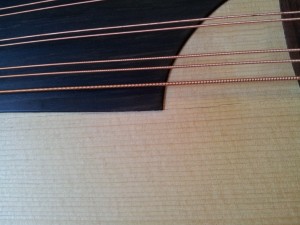
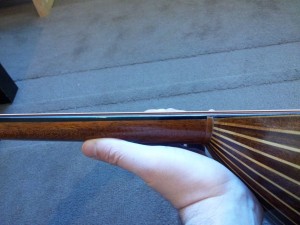
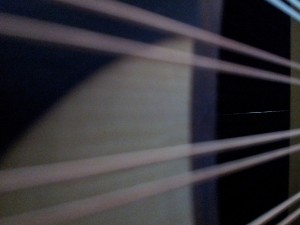
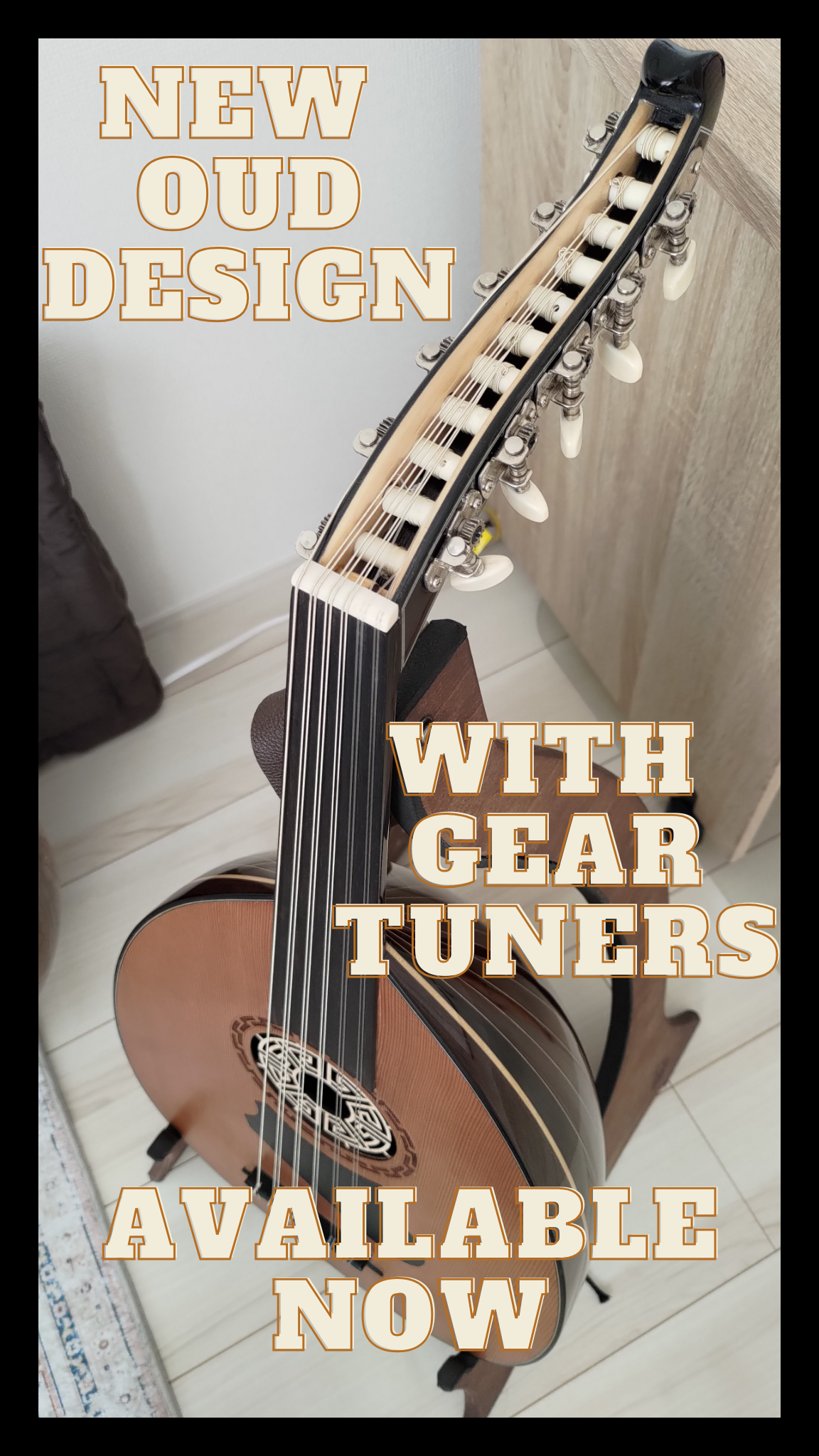
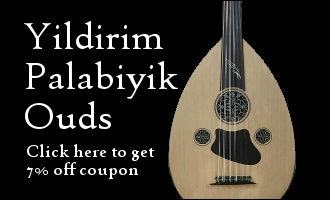
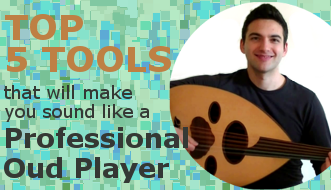


found this article very helpful indeed. My question is this: I have wooden pegs on my Oud and one broke, I was wondering if I should change them all to plastic pegs and where to purchase them?
I don’t think changing them to plastic is necessary. You should take it to a local Violin Luthier and see how much they will charge to fit you with a single new peg. If all your pegs are working fine, then I would just change the broken one. That is the cheapest option.
Thank you for your prompt suggestion
First of all I’d like to thank you for your articles – I am reading them for last 2 days all my free time and found it so useful and interesting!
And i got a question… what do you think about giving your oud to play to others? As it seems to me that an instrument has its own character, do you think it prefers one hands even if these hands are just beginning to play, or it is fine to allow play it sometimes to friends who does it professionally?
Yes it is fine to let others play it. It’s an interesting question. I have heard of the sound of instruments improving just by having someone capable playing on it for a while. Also when instruments are neglected they sometimes stop responding well as though they are mad at you. But this could be just part of our perception. As long as you trust the person, you can allow them to play it.
Thank you so much for your prompt reply!